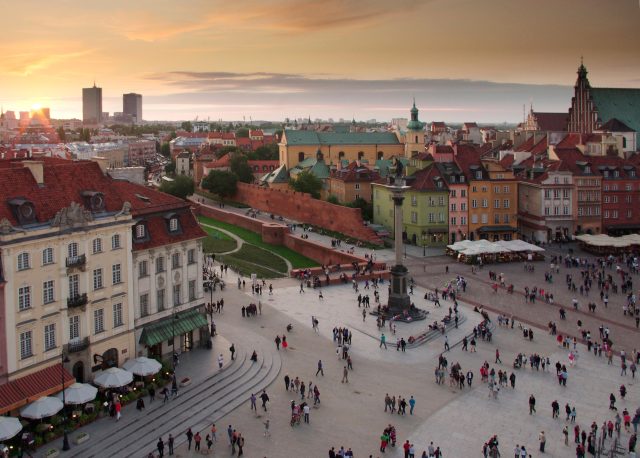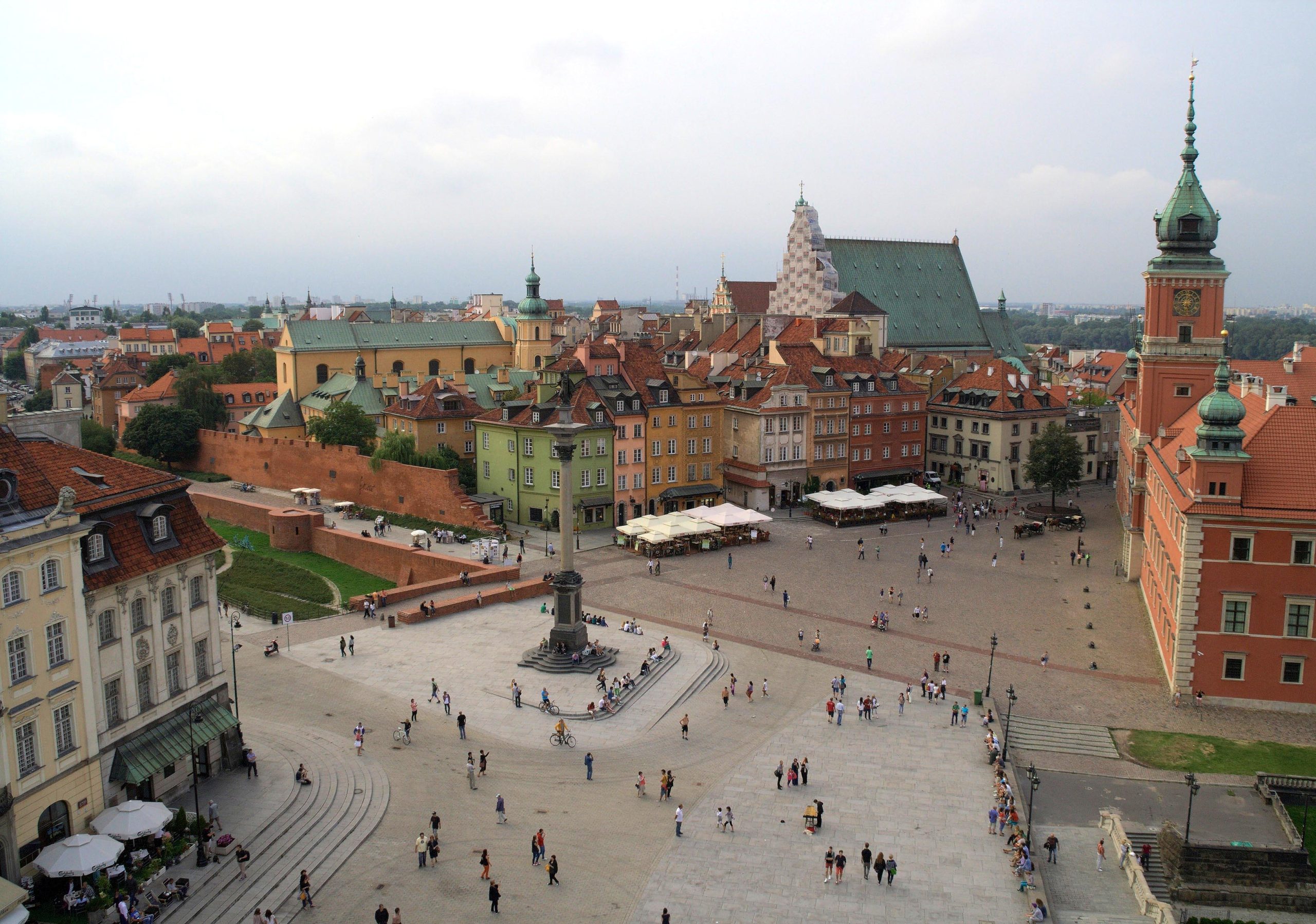
Poland is boiling again as Donald Tusk’s pro-European government is under attack from many quarters, despite having only just taken office about a month ago. On the one hand, he has to thank the carriers, who have blocked border crossings with Ukraine since November, protesting against unfair competition from Kiev. On the other, Tusk is facing increasingly vehement protests from the conservative opposition, who accuse him of trying to change with radical measures what the former government of the nationalist Law and Justice party (PiS) left behind after eight years in power. The Polish opposition and its supporters claim that the measures being sought by the centre-left, pro-European coalition that won the October elections will lead to the “annihilation of the Polish state” and are counting on the support of President Andrzej Duda, who has promised to use his veto to block the new government’s plans.
“We survived the Russians, we will survive Tusk”
Protests by citizens unhappy with the new government’s policies are taking place in several cities, but the largest protests are taking place in Warsaw and directly targeting Tusk, to whom protesters have addressed messages on banners they display alongside flags in national colours they wave.
“Tusk = 5th column”, “We survived the Russians, we will survive Tusk” and “Tusk in the cell, not in Brussels” are just some of the slogans chanted by opposition leaders and their supporters. But they are also talking about freedom – the freedom of the judiciary and the freedom of the media in the country. The word free is even associated with the name of the protest, with the protesters calling themselves “free Poles” and the protest – of free Poles.
Their specific grievances relate to the appointments made by the new government in the state media, the fact that former Justice Minister Mariusz Kaminski and his deputy Maciej Wasik were sent to prison immediately after the installation of Tusk’s government, having been convicted of corruption offences, although they had been cleared of these charges in 2015. We can safely say that freedom of the press in Poland died on December 22nd, 2023. That was when the Tusk-led government took over state television by force and the TVP Info news channel and its website, which had relentlessly attacked former EC President Donald Tusk after his return to internal politics, was cut off. Tusk’s excuse was that he wanted to take steps to depoliticise public media. PiS vehemently opposed this decision. In this context Maciej Swirski, head of Poland’s National Broadcasting Council, said that dismissing public media authorities would violate the law. Swirski considered the deactivation of TV signal and TVP Info websites an illegal act reminiscent of the worst times of martial law during the communist period in Poland. Former PiS premier Mateusz Morawiecki considered the culture minister’s actions in relation to TVP, Polish radio and the PAP news agency illegal. Morawiecki accuses the authorities who are supposed to look after the rule of law of actually violating it at every turn.
During the latest protest in Warsaw, which took place in front of the Polish Senate building, protesters also chanted the name of President Andrzej Duda, who is seen as an ally of PiS and who had previously declared that he had started proceedings to pardon the two imprisoned ministers. This is not the first time Duda has wanted to pardon the two. Former Interior Minister Mariusz Kaminski and his deputy, Maciej Wasik, were pardoned by Duda after they were first convicted in 2015 of abuse of power for allowing underlings to use booby-trapping techniques in an investigation. The decision was overturned by the Supreme Court, and the case is being retried.

Last year, after Tusk came to power, Poland’s highest court ruled that the case should be reopened. In the end, the two were sentenced by a lower court to two years in prison and subsequently arrested in a spectacular raid on the presidential palace itself. Having been pardoned after the 2015 episode, they were able to take up parliamentary seats. The consequence of the arrest of the two is that the Speaker of Parliament, Szymon Holownia, postponed a planned session of the Seim, the lower house of parliament. Szymon Holownia argues that, according to the law, the sentences deprive Mariusz Kaminski and Maciej Wasik of their parliamentary mandates. Holownia also says the situation has created a constitutional crisis.The Polish parliament has until the end of January to vote on the 2024 budget and send it to President Duda for his signature. If this does not happen, Andrzej Duda is empowered to dissolve parliament, which would implicitly lead to early elections.
Some provisions of European legislation are not compatible with the Polish Constitution
Critics in Brussels attribute legislative measures aimed at undermining the independence of the courts to the former PiS government, which has thrown the judiciary into chaos. The ban on abortion and the non-recognition of same-sex couples by law have earned Poland condemnations at the ECHR, but the former government in Warsaw further “angered” Brussels when it refused to implement the European court’s decisions by declaring that some provisions of European law were not compatible with Poland’s constitution. So, in addition to the conflict with Brussels over the rule of law and justice reform, and respect for privacy, the former government challenged the primacy of European law and EU Court of Justice (CJEU) decisions over national law. And this has led it, like Hungary, to have billions of euros in EU funding suspended by Brussels.
And this is what Tusk aims to do: undo these reforms in an attempt to free up funds. As for changing the state media leadership, Tusk argues that it is an attempt to restore balance to these institutions, which became PiS propaganda platforms during the party’s eight-year rule. On the carriers at least, the Tusk cabinet has scored a temporary victory. After two months of blocking the border with Ukraine, protest leaders decided to give the government a period of grace to resolve their grievances. The carriers have announced that they are suspending protests until the 1st of March. However, as the minister in charge, Dariusz Klimczak, pointed out, the agreement reached by the two sides “does not mark the end of the dialogue, but on the contrary, it opens very intensive discussions which should lead to specific solutions to fulfil (…) everything the carriers are asking for”, the Polish minister stressed.
Polish farmers and transporters want financial support from the European Commission
The transporters – like Polish farmers, who suspended their protests a few days earlier – are asking for financial support from the European Commission in the context of the liberalisation of Ukraine’s grain exports. Specifically, they want a return to the licences previously imposed on Ukrainian lorries and tougher road checks to detect any Ukrainian non-compliance with Ukraine’s agreement with the EU. The result Polish hauliers are hoping for seems hard to achieve as Ukraine is holding on to the concessions it has so far obtained from the EU.
“We will continue to defend the agreement on freight liberalisation (which allows Ukrainian truck drivers to be exempted from EU entry permits from the beginning of 2022 – editor’s note), as it is a condition for the survival of our economy,” Ukrainian Infrastructure Minister Oleksandr Kubrakov wrote on the X (ex-Twitter) network.
Ironically, only a few months ago, it was Donald Tusk who was inviting people to protest. In June, before the elections, Warsaw was rocked by a rally of several hundred thousand people, which was billed as the biggest protest since 1989. The opposition-led protests at the time included former Polish president Lech Walesa, who gave substance to the term solidarity three decades ago when Polish trade union protests lit the fuse that led to the fall of the Berlin Wall.



 Subscribe
Subscribe